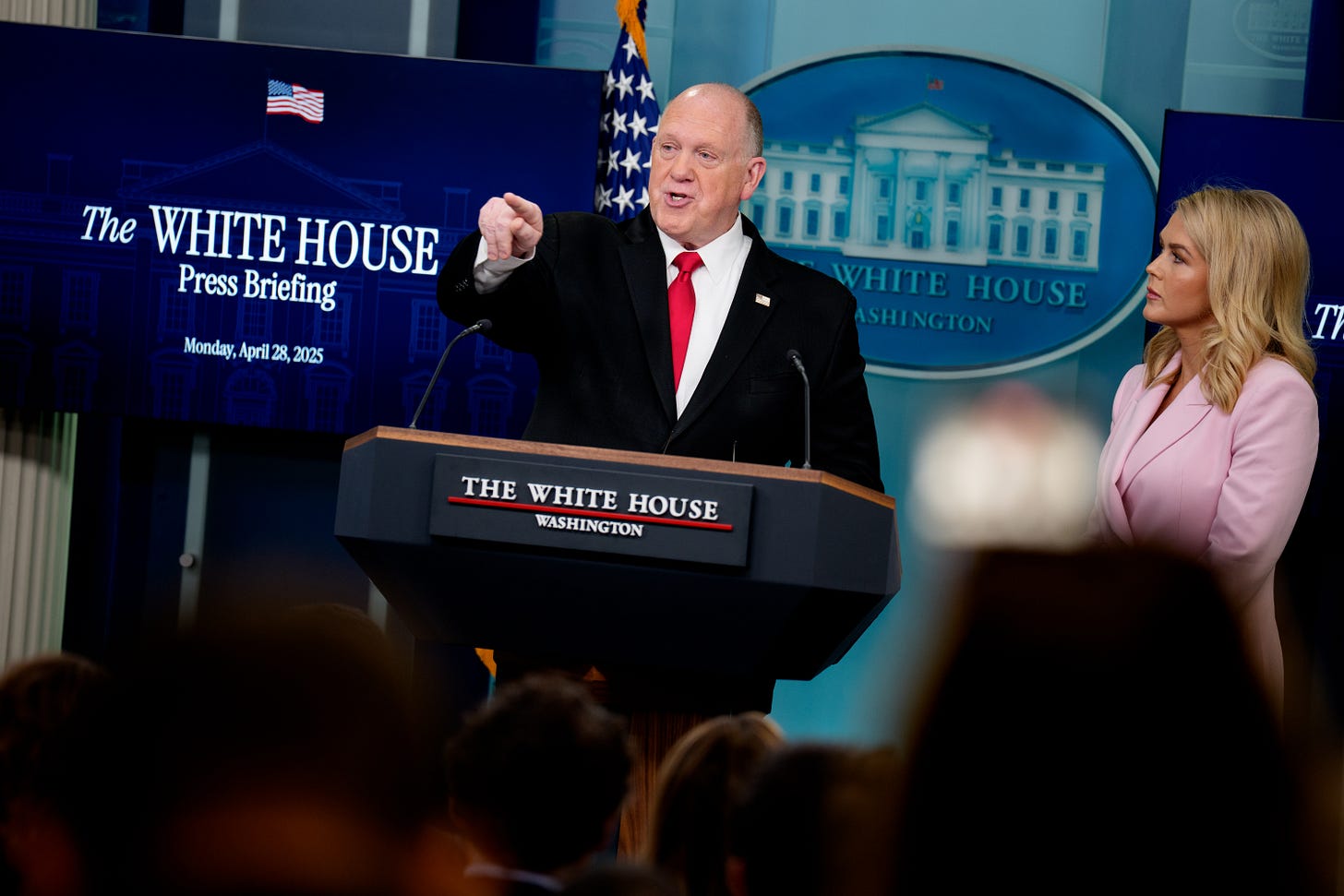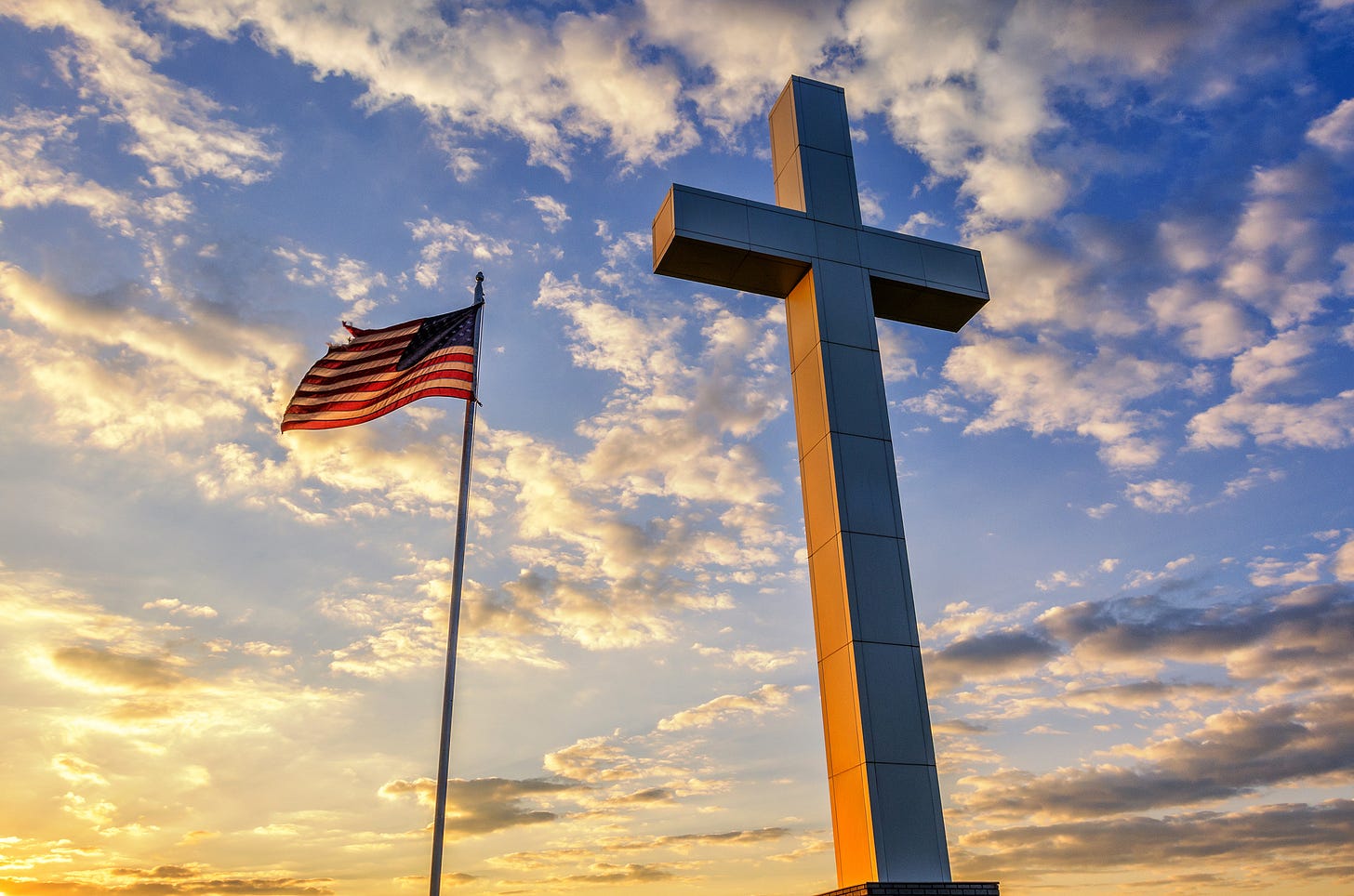
Cap, Gown, Chaos
May 1, 2025
Trump’s Immigration Policy Is a Failure Built on Lies
May 2, 2025Religious Freedom
A Conservative Primer
by John D. Wilsey
Eerdmans, 288 pp., $28.99
FOR THE FIRST HALF OF THE SECOND CENTURY B.C., Rome’s leading conservative politician was Cato the Elder. While perhaps best known for his energetic demands to destroy Carthage, Cato was also a prolific writer and an unabashed eccentric. One of his surviving works is a practical manual, On Agriculture, of which the most amusing portion is a long list of cabbage recipes. Some of the concoctions are intended to be administered internally, others externally, and all are offered as cures; cabbage, it turns out, can be used to treat every condition imaginable, from colic to ulcers to deafness. We must remember that Cato was an old-school Roman farmer, after all—a model of authentically Roman hardiness and Republican virtue whose example could serve to challenge the softer, mannered senators around him who were learning too much Greek for their own good. (That seems to be what he wanted us to remember about him, at least.) Proper Romans treat eye maladies at home by washing them out with the urine of habitual cabbage eaters. What, didn’t they teach you that in your Hellenic finishing school?
And then there is his pioneering history of Rome, The Origins. Only a few fragments from this work still exist, but they give us a good sense of Cato’s approach and goals. The work’s defining feature is the absence of names. Instead, every individual is referred to entirely by political or military title. The result? A highly moralistic history in which the heroes are not individuals per se, since their names remain unknown, but Roman virtues. You could argue that for Cato, the hero of Roman history is Rome—the great city-state, worth preserving and celebrating.
Quirks and all, Cato can be taken for the quintessential conservative—focused on maintaining the values and principles he took to be at the heart of his society while rejecting innovations that threatened them. (The subsequent history of the Roman Republic proved that his fears were not ill founded.) But as John D. Wilsey, a conservative evangelical, historian, and professor at the Southern Baptist Theological Seminary, points out in his new book, Religious Freedom: A Conservative Primer, there is more than one way to be a conservative—especially in America.
That point is particularly obvious right now. Take Elon Musk. He has been celebrated as a hero by conservatives, defended against his critics by conservatives, and warmly welcomed at the Conservative Political Action Conference (CPAC). Meanwhile, the utilitarian pronatalist has fathered fourteen children (that we know of), mostly with women to whom he is not married, all while boasting that doing so was a public good; the world needs more babies, after all, so why not his? When Matt Gaetz openly applauded Musk’s generosity in contributing to the gene pool, pro-family researcher Patrick Brown—a conservative of a markedly different kind—quipped, “With friends like these, who needs enemies?”
Reminiscent of Cato, Wilsey does not name any contemporary politicians in his book, and he stays far from the intramural fights happening among today’s conservatives. That’s because he is interested in advocating “aspirational conservatism”—a “prepolitical” vision that prioritizes establishing timeless principles over addressing woes specific to the American political situation at this very moment.
This reticence about contemporary politics notwithstanding, Wilsey does offer what he sees as a major political failure as a reference point for his book’s argument: Twenty-first century conservatism has been remarkably shallow, and he is convinced that the recent absence of truly laudable public role models for conservatives has made things worse. What kind of conservative ignores or perverts such key traditional conservative values as the respect of marriage and family? Someone who is not a true conservative, Wilsey might argue—or at least one who lacks the “prepolitical,” “aspirational,” “dispositional” conservatism he advocates: “The one possessing a conservative disposition aims for a higher moral destiny for persons and societies, guided by the light of permanent things, tradition, and just order.”
But what exactly does this mean? And no less important: How do we get there? Wilsey’s goal in this insightful and deeply personal book—part theological exploration of human nature, part treatise on the virtuous writing of history, and part memoir of a father determined to preserve something good for his daughters—is to recover a vision for the big-picture sort of conservatism that a pair of twentieth-century thinkers, Russell Kirk and Peter Viereck (a man with eccentricities of his own to rival Cato’s), argued for and personally exemplified.
The title of the book is slightly misleading: While it foregrounds “religious freedom,” the book’s concern with that topic is inextricable from Wilsey’s interest in how virtuous conservative citizens may flourish in—while helping to build up—a democratic society. In the process he draws on the writings of Alexis de Tocqueville, who found that the way Americans brought “the spirit of religion and the spirit of liberty” together is one of the unique things that helped make their country a success. And so, the book is, first and foremost, an impassioned manifesto written for conservatives—and specifically, for religious conservatives, and primarily conservative evangelicals like me—who worry that twenty-first-century American society, on both the left and the right, has grown unmoored, confused, overly secular, and generally symptomatic of the condition Alistair MacIntyre describes in After Virtue.
Wilsey exhorts us to consider better alternatives. “American conservatives are in the best position to articulate and defend the best of the American character by receiving, venerating, applying, and handing down the tradition of harmony between the spirits of liberty and religion,” he writes, summarizing the argument of his book. If we take up this challenge, we may continue a legacy of passing down a uniquely beautiful American societal inheritance that is at risk of being lost to the depredations of culture war. It is worth noting here that while Wilsey is a conservative evangelical, his inclusion of Viereck—an agnostic—as a model conservative intellectual indicates that many (although not all) of the principles he discusses might have some appeal or persuasive force for at least some secular conservatives as well.
AS CHRISTIANS HAVE AFFIRMED for millennia, this world is not our home. But we have the responsibility of stewarding what is entrusted to us while we’re here, and Wilsey is concerned with one “here” in particular: the United States of America. While conservatives around the world could benefit from reflecting on the general principles proposed in this book, Wilsey is clear that there is something special about the American experiment of democracy—something he wants to save. But first, “If we are going to be conservatives, and if we are going to conserve the American tradition of harmonizing religion and liberty through public spirit, then we must know what a conservative is and what conservatives value. In other words, we must know what conservatives are before we can know what conservatives do.”
This is how he sets up the opening chapter on the thought of Kirk and Viereck, Wilsey’s exemplars of true conservatism. The rest of the book offers, in their spirit, an exploration of five key subjects relevant to thoughtful and virtuous living: the imagination, nationality, well-ordered liberty, history, and religion.
Why these five? Because they are the sites where we must ground the foundational principles that establish aspirational conservatism. Too often, we think of conservatism first in purely political terms: Conservatives are people who vote for right-wing candidates, and therefore, anyone who votes in this way is a conservative—by their fruits shall you know them, you might say. But that doesn’t mean you’ll know much, or even anything about them. Such a reductive logic confuses the shallow, self-centered, and secular right-wing views of folks like Elon Musk or Andrew Tate with a more principled conservatism in the eyes of the larger public.
In lieu of a political and sociologically descriptive account of conservatism, which will always be shallow and time-bound, we need deep and long-lasting foundations for a normative, prepolitical conservatism, Wilsey argues. Such foundations allow us to form good habits of mind and soul that will, in turn, form us as virtuous members of our homes, churches, and communities. Christians will naturally see the value of this view for enabling our spiritual growth, but non-Christians should be able to appreciate the benefits of such ideals, too. It’s no wonder both Athenian democracy and the Roman Republic were obsessed with formation of citizens in the virtues. After all, it is better for a state to have virtuous citizens than, well, ones who are not.
With these premises in mind, Wilsey’s five-part account of the principles that underwrite aspirational conservatism yields the following upshots. A healthy imagination allows conservatives to form a worldview that is anchored in God and in the good, the true, and the beautiful. A healthy view of nationality allows conservatives to foster a patriotism without idolatry—a love of country as something beautiful but not ultimate. A well-ordered view of liberty rejects libertinism and recognizes God-given limits as essential for virtuous living and for honoring our interactions with other people, whom we must recognize as fellow image bearers. Likewise, a thoughtful conservative approach to history—one that doesn’t venerate or denigrate the past—requires us to be virtuous in our treatment not only of those around us in the present, but also of those who have gone before us. Finally, conservative view of religious liberty brings us to a well-ordered relationship with God, as well as with other people.
The overall takeaway is: There is much that is worth conserving in the American tradition, but the task of doing so belongs to well-formed, virtuous people, such as we must become. It makes some sense, then, that the muse animating this project is ultimately not Tocqueville but St. Augustine of Hippo. Augustine’s presence throughout serves as a reminder that Christian spiritual formation and the formation of believers in the virtues have been predominant concerns among church leaders for thousands of years, and they are no less vital today.
Further, Wilsey’s project of growth in democratic and spiritual virtue is deeply personal, as Augustine’s was to him. Spiritual formation, Wilsey shows us, is impossible to separate from our formation as virtuous members of our society, because we are both of these things in the same body and soul—believers and citizens. This is where the theological concept of lifelong sanctification—growing more like Christ in our character, love for others, and spirit of self-sacrifice—makes sense not only in a religious context, but as an idea that applies to how we view citizenship.
IT’S HARD NOT TO simply offer acclamations for Wilsey’s beautiful vision for American religious conservatism. I would love to see it materialize and flourish. Religious Freedom is an encouraging and hopeful book written by someone who believes what he writes, who has the encourager’s vocation, and whose character is consistent with his view of the world. If there is a flaw here, I would locate it in Wilsey’s unwavering hope and trust in the likelihood that this vision of conservatism will come to fruition. To think more carefully about this, it behooves us to consider the topic that Wilsey pointedly sets aside at the outset: politics.
Over the past few years, the threat of Christian nationalism has rapidly overtaken public discourse, and a book on conservatism and religion would seem a natural place to address the subject head on. But Wilsey’s commitment to making this project “prepolitical” is thoroughgoing, and he makes scant mention of the topic. The strongest direct criticism he offers in response to the work of other thinkers who claim the mantle of conservatism—for instance, the self-proclaimed Christian nationalist William Wolfe—is that they have embraced political thinking as being primary, and mixed a bit of religion into it as a secondary matter. This is a perennial temptation, Wilsey writes, but we should resist, because
in any alliance of religion and politics, politics loses nothing and religion loses everything. That is, religion loses its credibility and influence in society because it becomes too closely associated with fleeting political trends of the day.
Wilsey is right: The great risk to the integrity of American religion has always been its co-optation by American politics. (Some would argue the seeds of its current subversion were sown long ago.) But how do you convince a person who has little use for personal virtue to become virtuous? I worry that Wilsey’s readers will primarily consist of people who already agree with him on the value of such things, and who will be content to rearrange deck chairs with him as the ship of American conservatism—sociologically construed—continues to sink into ignorance, race hatred, and reaction.
Books take a long time to gestate and move through the publishing process. Wilsey’s book likely reached its final state a year or more ago, long before anyone could have imagined the present state of our nation’s political affairs. But maybe today’s political turmoil is yet another reminder of the need to have at least some conversations that are more timeless than tied to the latest headlines. Wilsey is not the only one calling for prepolitical conversations about cultural transformation and renewal in Christ at these times of difficult politics—indeed, in many ways his book reads as an expanded version of the manifesto of Comment magazine (in whose recent pages readers will also encounter the term “prepolitical”).
For Christian conservatives like myself, there will always still be reasons for hope. Here is one: The most successful form of religious and spiritual appeal to nonbelievers, which has brought many secular children of late modernity into the church, has lately been cultural apologetics, broadly considered—that is, the work of forming the imagination and worldview of secular people to see their need for God’s truth, goodness, and beauty. What is on offer could be described as a kind of aspirational conservatism in the Augustinian mode, too—living in the city of man, but with eyes fixed on the City of God. As our political moment becomes more fraught, the value of this worldview will only become more compelling.
Nadya Williams is books editor at Mere Orthodoxy and the author of the books Cultural Christians in the Early Church (2023); Mothers, Children, and the Body Politic (2024); and Christians Reading Classics (forthcoming in 2025). Substack: @nadyawilliams.
Great Job Nadya Williams & the Team @ The Bulwark Source link for sharing this story.






